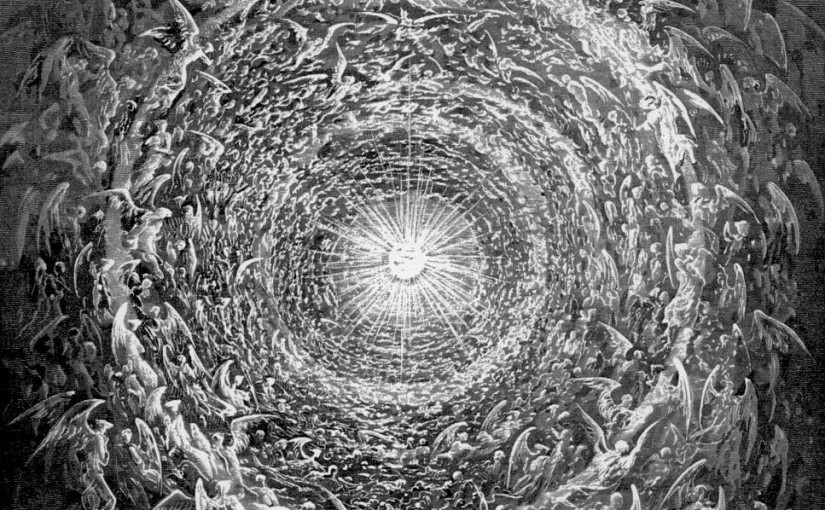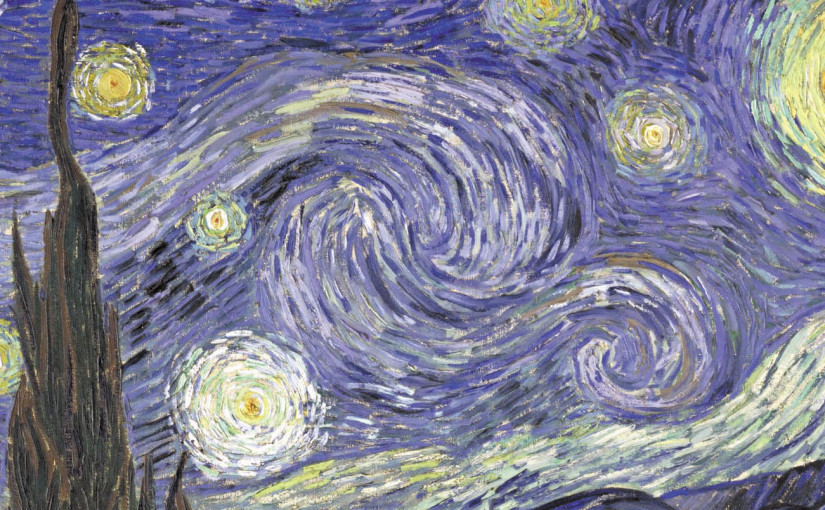This is the great war, as viewed from sea level: sense versus nonsense. That’s it. Maybe there’s more? Read on. The nonsense is generated for some private end, usually for the money, sometimes for the power, a lot of times for both (having one generally gets the other). It usually turns out that there is no other conspiracy than these. Yes, we’re in it between good vs. evil, but the way it plays out in what we call reality, sense vs. nonsense is what it actually boils down to. And I don’t know (though I have some idea of how it happened), but here in the middle 2010s, there are a LOT of people who identify themselves as Christians who are part of the nonsense. At least some of them can’t help it, having been indoctrinated from an early age in a simplistic idea of what that means, to be a Christian, and what to do with the book they thump—the Bible being then used to cover up the light, instead of being a light.
Contrary to what some so called “Christians” think, faith is not a substitute for intelligence. Indeed, ignorant faith can be what is diametrically opposed to true faith. In the parable of the sower, some seeds fell along a path and the birds came and ate it up. Explaining this, Jesus said that these were those who heard the good news, and did not understand it. Those who do not understand the real message of Jesus Christ are caught up in the care of themselves, and seem not to care for the welfare of others. The thought that other people should do as we do, and believe what we believe. “They should change to fit our idea of how things should be. We should not have to change ourselves at all, for we are of the elect, and therefore justified in discriminating against you, and shutting you down if you are different. Because we know we are right! For Jesus is on our side…” These people are scary.
Going a level up in this argument, these may say, “But are you not doing the same thing, here, to say we should think like you?” When you do not love your neighbor as yourself, that is what is against Christ. Do you not understand the Gospel? We are all of us sinners, no one of us better than the rest. We are called to be like Christ, who sat with the despised: do not do the despising. Do you want to be angry at someone? Direct your anger at the rich, who do hateful things and get away with them because of their wealth. This is what Christ did. And he was with the times, back 2000 years ago, that some of the traditions of religion were outdated, and if you have ears to hear, understand that some of the traditions of 2000 years ago are now, too, outdated. We’re not supposed to keep slaves anymore. And women should be seen as equal to men. Use your intelligence, and keep your faith. Such is a narrow way, indeed.
It is getting exceedingly easy these days to pick out which people are the ones to root against, and yet people seem to have trouble seeing it: the love of money is the root of all evil. [1 Timothy 6:10] Take a look, and follow the money. It almost always overflows into the cesspools of the human soul. But yet people do not see it. They don’t see what they don’t want to see, it would appear, or are their gazes averted for them? Surely, they are given distractions, given a moral high ground, given enemies. Then, they can make believe that the fight they fight is that primal good vs. evil, God vs. the Devil, no matter that the enemies are more vulnerable than they, because such us vs. them mentalities fit in a soundbite, can be catchy. And what makes their ears shut out the voices of reason—it’s because the voices of reason don’t tell them they’re the hero, and the soundbite does.
So is this writing doing the same thing? In saying that we are the good guys, are we then deluding ourselves in the same way? Indeed, if we say that there is no fault in what we do, we surely delude ourselves. But it is not enough to pick a side and push as hard as we can in that direction, we must apply the prudence that is available to us. For instance, those who say they are Christian like to think that they live according to the teachings of the Bible, but in many cases, it is not the case. If you study the history of the “values” they hold, you will usually find that they are traditions from human beings, not decrees of God that they follow. And in joining like minded people like those of that tradition, they get a little mental reward, when they believe that they are somehow “in the right”, and other people are not, and so they are “better people”. If you follow wisdom, however, you will see that the goal is not to be better than anyone else—it is instead to strive for equality, for we are all sinners.
Do you imagine that in following the dictates of the church instead of the dictates of reason that we follow Christ? That to follow in Christian tradition instead of what is in the heart is to be Jesus’ disciple? So it is written: “In the beginning was the Logos, and the Logos was with God, and the Logos was God,” [John 1:1] and of that Logos, “He was in the world, and the world came into being through him; yet the world did not know him.” [John 1:10] The word “Logos” is usually translated as “Word”, but I find it loses too much in the translation. “Logos” is of the same root as “logic”, and it means something like “reason”, and being capitalized, it would be “holy reason”. The Logos is the means by which anything works, here in the prime material plane. That this is Christ means we follow sense before nonsense, even if what is sense is called agnostic, and the nonsense is labeled Christian. And if you follow doctrine instead of the heart, you do not know him.
You are on one side or the other, sense and nonsense at odds expressible as logos vs. derangement, as to how it relates to reality, to things that exist in our material realm. If you do not yourself know which side you are on, or think of course you’re on the side of the Logos, there are a couple questions you can ask yourself. Is what you believe at all realistic? Because the Logos is all about being real. If you think you are a Christian because you believe the age of the world is 6000 years, then no, you’re not being realistic. And frankly, you’re not being Christian, because the Logos is not about trying to fit the wide world into your “little box of things that make sense to me because I never tried to understand what’s really out there”. Say hello to science. What is transcendent needs no protection from science. Put in another way, your God is too small.
The other question you can ask is if you want to impose your way of seeing things upon others, who think differently. There is something similar to doing that which is perfectly fine—that would be logical argument (logos again)—but to say, do it this way only because that’s what the Bible says (according to me or my group)? No. Try again. This time, with intelligence. When science tells you to do things, like to vaccinate your kid, it is not just “because I believe this is true”, and if you think your faith trumps science, especially because you think God is on your side, see above. You are not Christian simply because you go to church. I want to make this clear, if it wasn’t before: being a Christian means that you make sense. It is to be on the side of logos, and not derangement, however high and mighty that derangement sounds. And science—or anything like it—is not from the Devil, just because you don’t understand it. It is, again, quite from the Logos. It is a way to make sense of things.
Understood, bad things have been done in the name of science, but even worse has been done in the name of God. We live in an age where an entire world’s worth of information is at our fingertips. We can easily do the research when something comes up to make us question. We can start making sense of things, even if we have been told lies. It can be frightening to do, to question things that we’ve always believed. But to anyone who feels anchorless unless possessed of the simplistic “truths” that made sense of everything, or who could stuff all the outliers in the blanket cast of “Satan”: think for yourself. And further, if you want a place to start thinking for yourself, that is unquestionably in the Spirit, look, and see: God is love. Even if you don’t believe in God, you can believe that. And if your God is not love, I take off my sandals and shake your dust off them. Good luck in the Judgment.
On that last point, indeed, let it be known that sense, reason is not an end to itself. But it is the only ground from which love can grow. In thinking that God is love, it is the highest ideal for which we can strive, and gives us perspective on all things. Even if there were no God, He exists in our minds as the greatest possible being, and that structures the rest of which we can know as a light at the top shining down. It is hope itself. Let it be how you can make sense of every last thing. And remember, if you do not pick a side, you are not making sense: you are, in fact, choosing nonsense. For the tendency of the world is toward nonsense, toward entropy, unless we do something about it. It is the cost of living. And truly, that is better than dying: do you not see? have you not heard? Love is the only thing in all the world that is real. If it is not of love, it is illusion. Do not spend your precious life on a mirage, while you are in the desert, wasting away. That’s just nonsense. Nonsense.
If you like what’s written here, check out my book, Memoirs from the War in Heaven.





